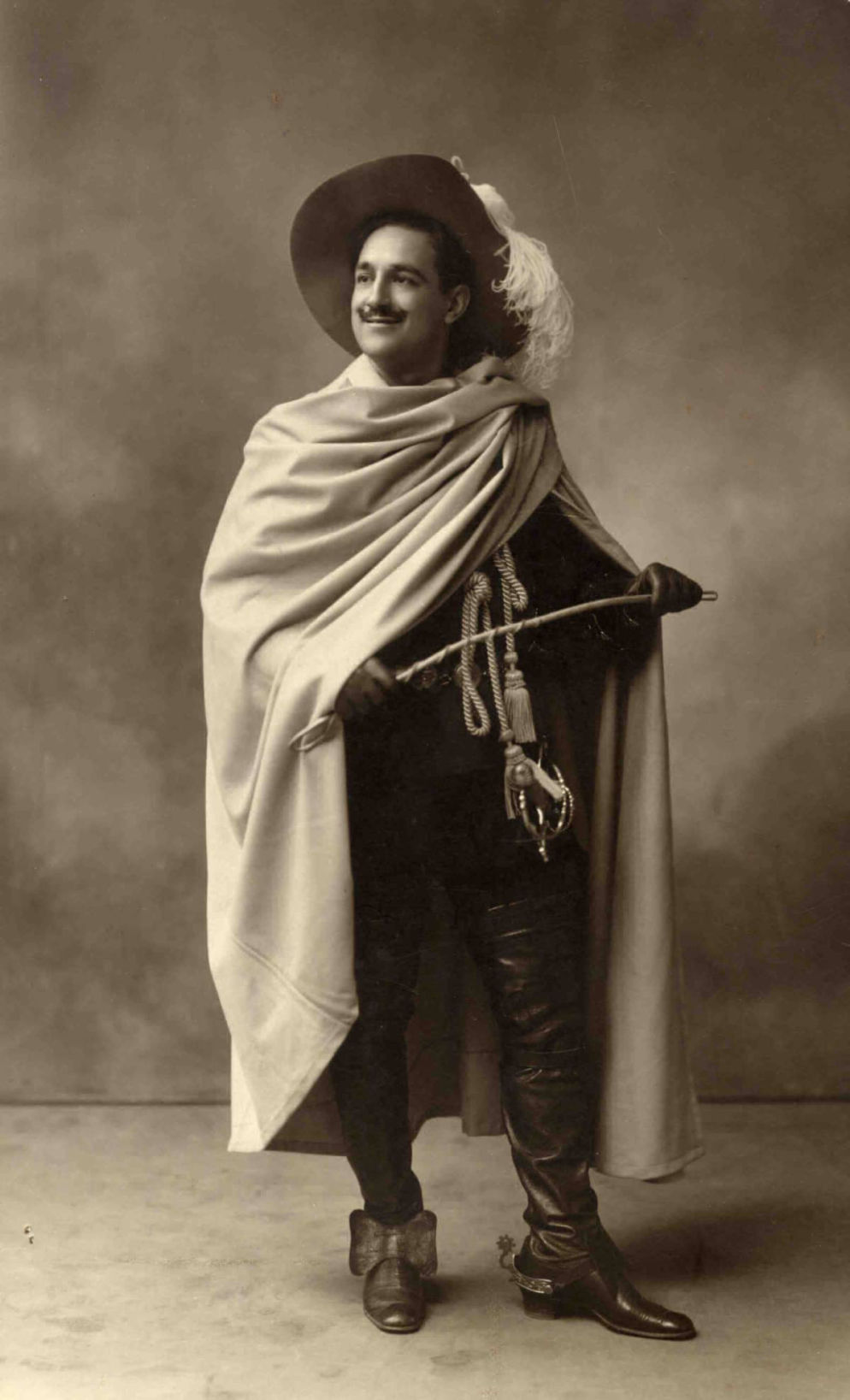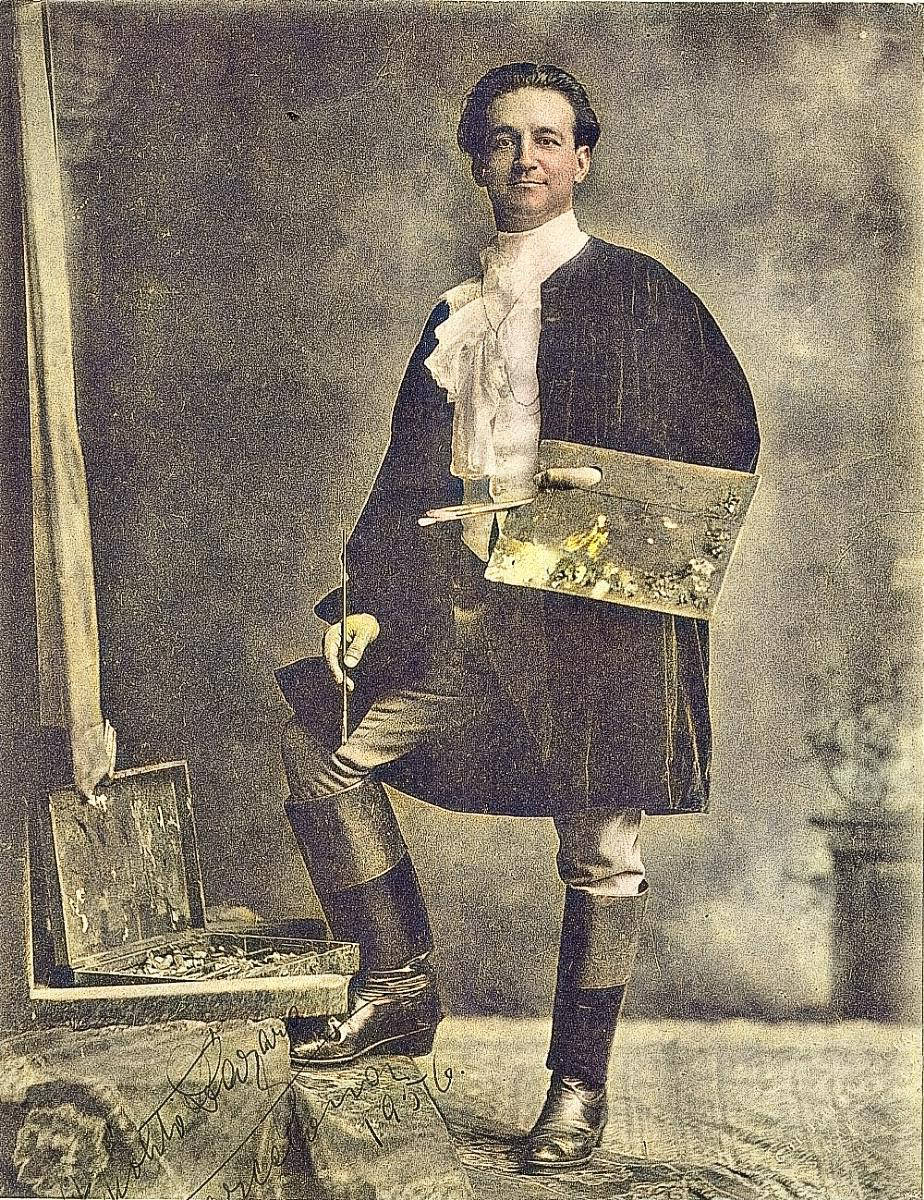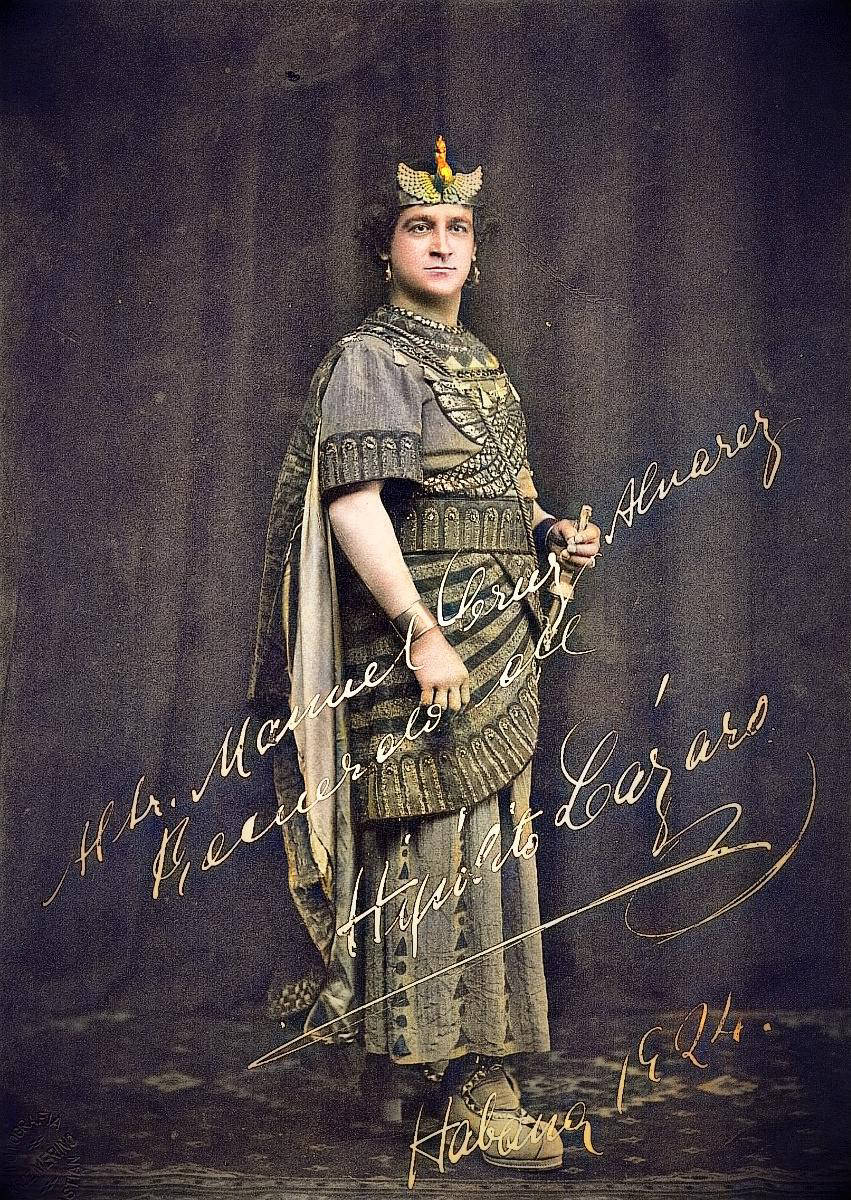Hipólito Lázaro
Hipólito Lázaro Higueras was born in the popular district of Gracia in the bosom of a humble family. As a child he sang with an amateur choir called "L'Oreneta". He began to work from a very young age in various trades. He soon stood out as a singer. He debuted at the Principal Theatre in Olot performing "Marina y Bohemios" while performing military service, although his official presentation did not take place until 1910 at the Novedades Theatre in Barcelona singing Donizetti's Favourite with an Italian opera company directed by Arturo Baratta and Sebastián Rafart. That same year he sang in Valencia and Palma de Mallorca and moved to Italy, where he performed with Rigoletto in Ferrara.
In 1911 he sang in the London Opera House and other theatres of England under the pseudonym of Antonio Manuele and on his return to Italy he was hired in Ferrara, Padua, Treviso and Rome, where he replaced Alessandro Bonci in an apoteósico Rigoletto with Riccardo Stracciari. After a tour of Egypt with performances in Cairo and Alexandria, he returns to the London Opera House in London.
In 1912 he was hired by Covent Garden for the opera Traviata with Luisa Tetrazzini. However, personal disagreements during trials will lead to termination of contract. Lazarus will never sing in that theater.
In the same year, he will have a tough encounter with the publisher Tito Ricordi, who sees in Lazarus a great rival for the Italian tenors he protected.
In 1913 will be an important year in his life when he meets the composer Pietro Mascagni who was very impressed by the characteristics of his voice during performances of Isabeau in Genoa and Iris in the Costanzi Theatre in Rome, performances that suppose the farewell of the stages of the soprano Emma Carelli who asks to have Lazaro by his side.
The great consecration will come that same year as Pietro Mascagni entrusts him with the creation of the role of Ugo of the Parisian opera, opera with libretto by Gabriele d'Annunzio, in the premiere of this opera that he had at La Scala in Milan on December 15, 1913 directed by Mascagni himself.
In 1914 will be the year of the first South American tour that will take Lázaro to debut in Buenos Aires, Rio de Janeiro, Sao Paulo and Montevideo among other cities.
That same year, 1914, one of Lázaro's most desired debuts took place, that of Barcelona's Gran Teatre del Liceu singing Rigoletto on the night of 12th November. From that very moment a special connection was established between Lázaro and the Catalan public that would venerate him throughout his career.





